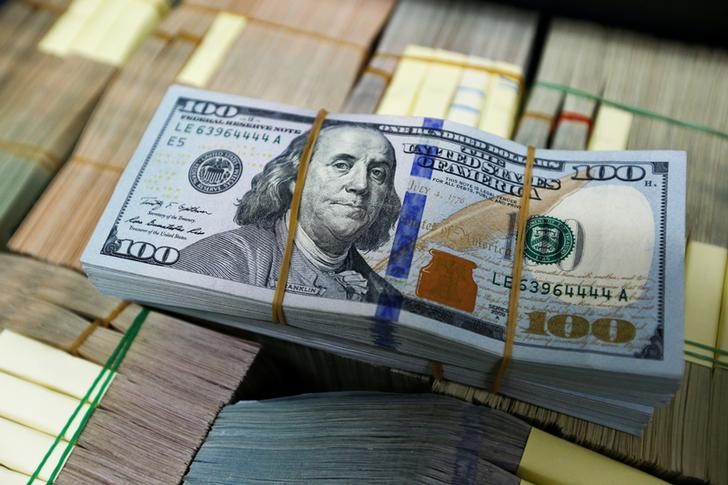By Masayuki Kitano
SINGAPORE (Reuters) - The dollar hit a 21-month low against the yen on Thursday as the yen surged broadly after the Bank of Japan held off from expanding its monetary stimulus.
The yen also hit multi-year highs against the euro and sterling as well as the Australian dollar, as ongoing worries that Britain may vote next week to leave the European Union dampened risk appetite, prompting investors to head for the safe-haven Japanese currency.
The dollar fell to 104.06 yen at one point, its lowest level since August 2014. The dollar last traded at 104.14 yen, down 1.8 percent on the day.
The greenback had already been under pressure after the U.S. Federal Reserve lowered its economic growth forecasts, cementing expectations that it will have to skip tightening next month, even as the Fed still signalled it was planning to raise rates twice this year.
Fed Chair Janet Yellen was not clear on whether a rate increase could come at the next policy meeting in late July, but investors decided that the absence of any hint meant no hike next month, with interest rate futures effectively pricing out a July rate hike.
The dollar came under renewed pressure against the yen after the BOJ kept its monetary policy unchanged.
"For today's BOJ decision the view was that they wouldn't do anything, but there was also a bit of caution that they might, and that had tempered (dollar/yen) moves until the announcement," said Shinsuke Sato, head of FX trading group for Sumitomo Mitsui Banking Corporation in Tokyo.
The BOJ's decision to hold off from additional monetary easing triggered a burst of yen buying, he added.
The yen broadly extended its gains after the BOJ decision, with the Australian dollar (AUDJPY=R) falling 2.1 percent to a four-year low of 76.94 yen on trading platform EBS at one point.
Against the yen, the euro (EURJPY=R) fell to 117.40 yen (EURJPY=R), its lowest level since January 2013. The euro edged up 0.2 percent against the dollar to $1.1281
Sterling slid to 148.50 yen
The yen's surge prompted a fresh verbal warning from Japanese authorities against its strength, with a senior official at Japan's Ministry of Finance saying he was concerned about one-sided, fast moves in the currency market.
The near-term focus for the yen is a news conference by Bank of Japan Governor Haruhiko Kuroda from 0630 GMT.
The dollar could come under further pressure against the yen if Kuroda provides no clear hint that the BOJ would expand its monetary easing soon, said Tan Teck Leng, FX strategist for UBS Wealth Management in Singapore.
Analysts will watch whether Kuroda's comments suggest that the BOJ has a very strong easing bias or if the central bank is prepared to act immediately if Britain votes to leave the European Union at its June 23 referendum, Tan said.
"If he doesn't say anything...then I would expect the dollar/yen to fall," Tan said.
In that case, the dollar could fall to 100 yen if Britain were to vote to leave the EU, Tan added.

Amid the focus on next week's UK referendum, sterling eased 0.3 percent to $1.4162